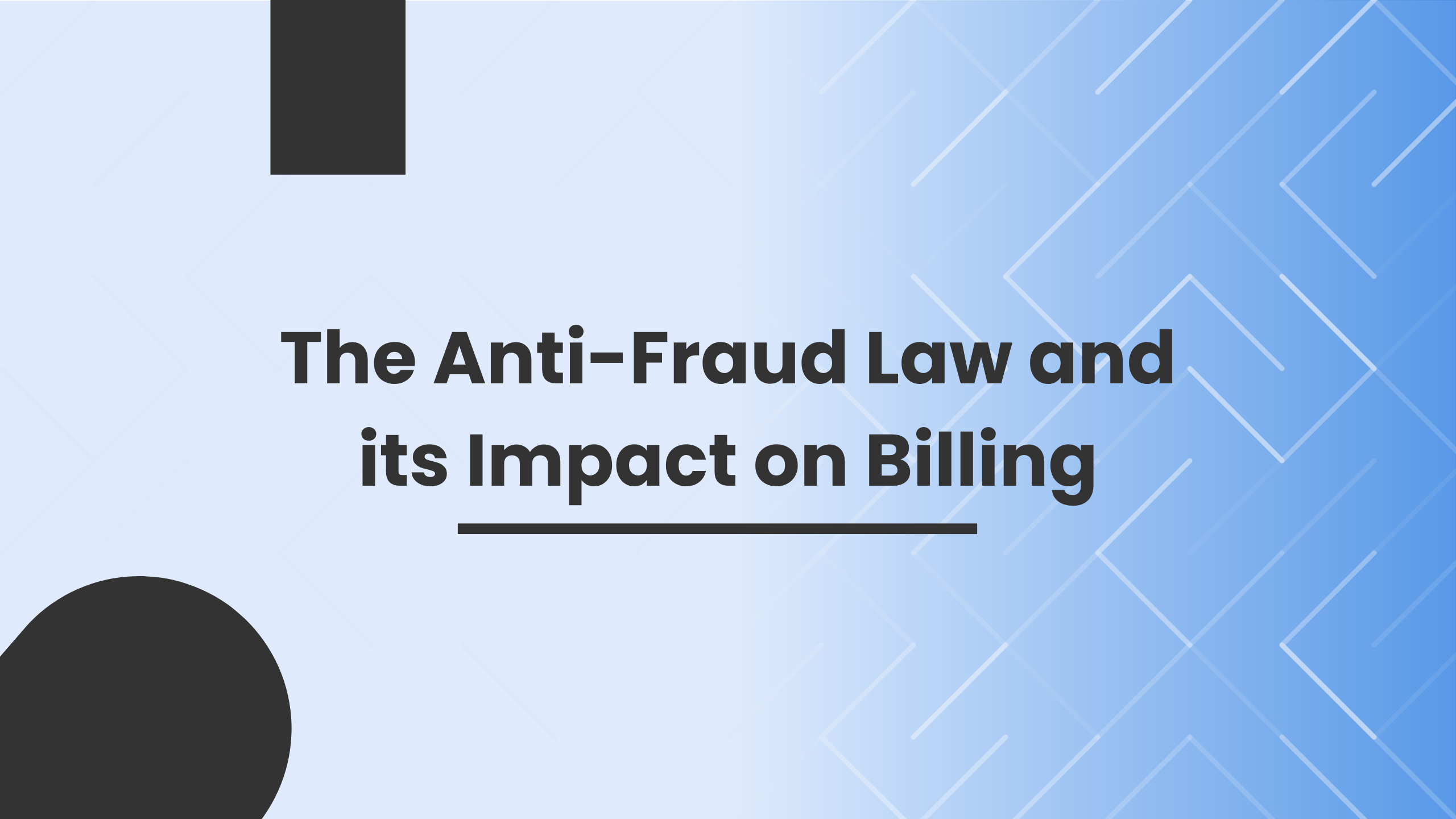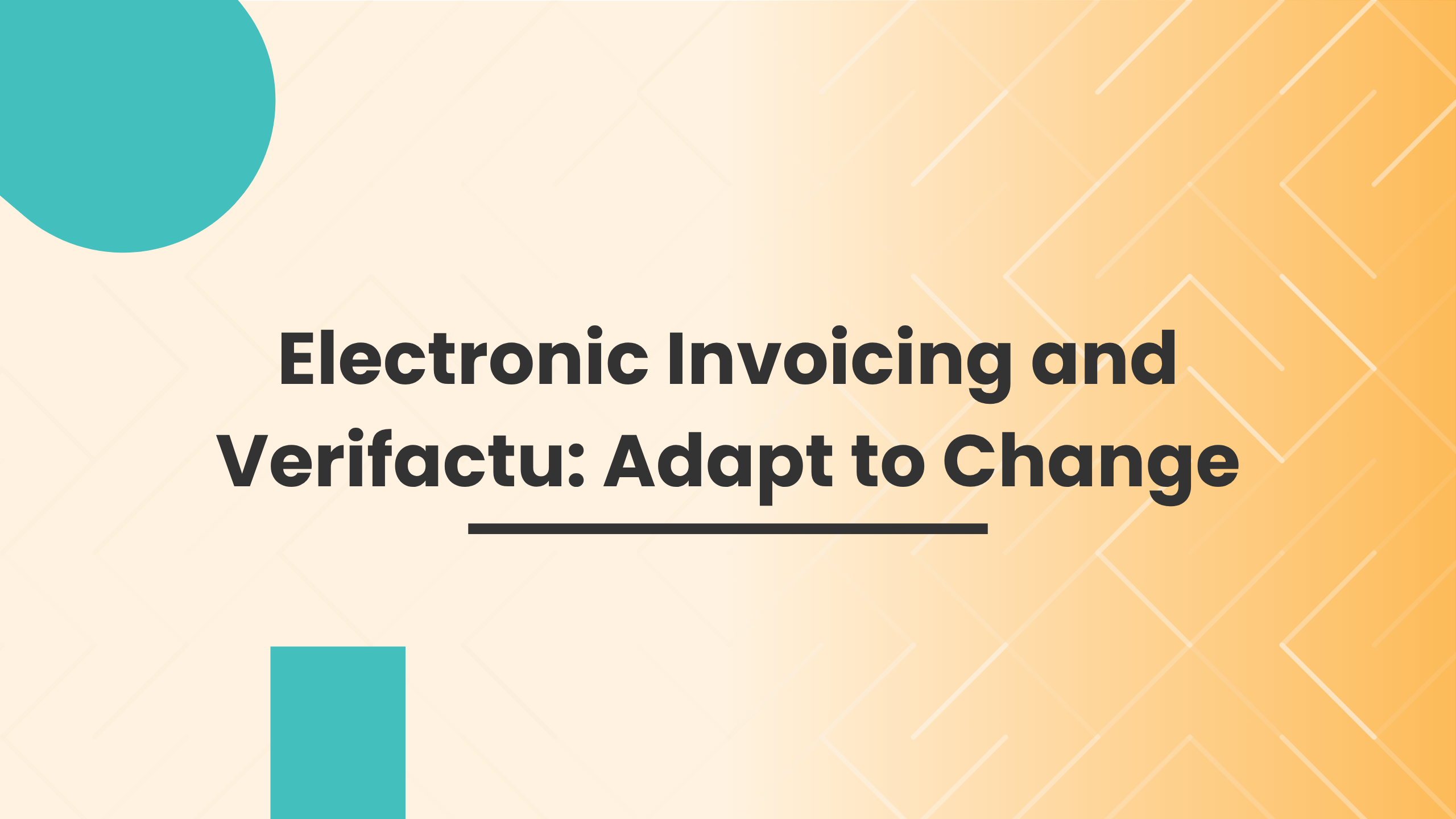Create and Grow Law: What you need to know about electronic invoicing

Content:
A significant change is taking place in the Spanish business landscape that will affect the way all companies manage their invoicing. The Business Creation and Growth Law, popularly known as the Create and Grow Law , is transforming traditional administrative processes with the goal of modernizing the Spanish business community, combating tax fraud, and reducing late payments.
To understand the importance of this regulation, let's consider some revealing data:
Spain lost a staggering €5.84 billion in revenue in 2019 due to VAT fraud. Furthermore, in 2022, 73.3% of invoices were paid late.
These alarming figures justify the need for a change in the billing system that provides greater transparency and control.
E-invoicing is not just a trend, but a growing reality. In 2022, its use increased by 32% , with more than 339 million e-invoices processed, resulting in administrative savings of over €18,966 and a positive environmental impact by avoiding the felling of 1,437,660 trees .
What exactly is the Create and Grow Law?
The Create and Grow Law, approved by the Congress of Deputies on September 15, 2022, and published in the Official State Gazette (BOE) on the 29th of the same month, has four fundamental objectives:
Improving the business climate in Spain
Promote entrepreneurship
Promote the increase in business size
Deploy networks of collaboration and interaction between companies
This regulation, which complements others such as Law 25/2013 on the promotion of electronic invoicing, introduces the main new feature of making electronic invoice exchange mandatory in all business-to-business (B2B) transactions within Spain, thus extending a practice that was already mandatory in relations with public administrations.
Electronic invoice vs. digital invoice: key differences
Before delving into the implications of the law, it is important to clarify the difference between two concepts that are often confused:
Electronic invoice : This is a tax document that meets the same legal requirements as a paper invoice, but is generated, transmitted, and archived in a structured electronic format. The information is encoded so that it can be automatically processed by computer systems.
Digital invoice : This is simply a document in PDF, Word, JPG, or other similar format that is sent by email or printed. In this type of invoice, the information is not structured for automatic processing.
The Create and Grow Law specifically requires the use of electronic invoices , not simply digital ones, which implies a more profound transformation in companies' administrative processes. To achieve this, it is essential to have electronic invoicing software that allows invoices to be generated, sent, and stored in the required formats.
Timeline of electronic invoicing in Spain
The implementation of electronic invoicing in Spain has followed a progressive path:
2015 : The obligation to invoice public administrations electronically is established.
2017 : The SII (Immediate Supply of VAT Information) is implemented.
2018 : Electronic invoicing becomes mandatory for subcontractors and state contractors.
2022 : Approval of the Create and Grow Law.
2023 : Publication of the draft technical regulations (September 2023).
2024 : Approval of the final technical regulations is expected.
2025 : Electronic invoicing will be mandatory for companies with annual turnover exceeding 8 million euros.
2026 : The requirement will be extended to all companies with a turnover of less than 8 million euros.
When does the obligation actually come into force?
One of the aspects that raises the most questions among business owners is the exact date this obligation will come into effect. According to available information, once the administration approves the final regulatory development (expected for 2025), the implementation deadlines will be:
One year for companies with annual turnover exceeding 8 million euros.
Two years for companies with a turnover of less than 8 million euros.
This means that the obligation is expected to become effective starting in 2026 for large companies and in 2027 for SMEs and the self-employed . To facilitate compliance, it is advisable to rely on specialized solutions to facilitate the transition now.
Which companies are affected by the Create and Grow Law?
Unlike previous regulations that affected only specific sectors, the Crea y Crece Law is universally applicable. It affects all companies and professionals conducting B2B transactions in Spain , regardless of their size, turnover, or sector of activity.
This universality represents a significant change from the previous situation, where electronic invoicing was only mandatory in the state public sector and in companies in specific sectors such as electronic communications, consumer financial services, or basic utilities.
Consequences of not complying with the Create and Grow Law
Companies that fail to comply with the new law's requirements will face significant consequences:
Financial penalties : Companies that do not offer the option of receiving electronic invoices may be penalized with a warning or fines of up to 10,000 euros.
Restrictions on access to public aid : The State Observatory of Private Late Payments, created by the same law, will establish that companies that fail to meet payment deadlines will not be able to access public subsidies.
Competitive disadvantages : Non-adapted companies will experience operational inefficiencies compared to competitors who have successfully implemented electronic invoicing.
Problems with customers and suppliers : The inability to exchange electronic invoices could complicate business relationships with other companies that have already adopted the system.
All about electronic invoicing: beyond legal compliance
Although adapting to electronic invoicing may require an initial effort, the medium- and long-term benefits are considerable:
Economic savings : Reduction in printing, mailing and physical storage costs.
Operational efficiency : Shorter processing cycles and less chance of human error.
Improved treasury management : Greater control over collection and payment deadlines.
Environmental sustainability : Significant reduction in paper consumption and the associated carbon footprint.
Accessibility and security : Faster and easier access to invoice history, with greater transaction security.
Tax control : Better traceability of operations and reduction of tax risks.
Many of these benefits are enhanced by using an electronic invoicing solution that automates processes and provides complete traceability.
Supported formats for electronic invoicing
The law's technical regulations will establish the specific formats that will be accepted for compliance with the electronic invoicing obligation. To date, the permitted formats have been indicated as follows:
Facturae Message : The standard format of the Spanish public administration.
EDIFACT invoice message in accordance with ISO 9735.
UBL invoice and credit note messages as defined in ISO/IEC 19845:2015.
UN/CEFACT industry-wide invoice message as specified in the 16B XML schemas (SCRDM — CII).
Additionally, the Ministry of Economic Affairs and Digital Transformation may include other syntaxes in the future.
It's important to note that all private e-invoicing platforms must send a simplified copy of the invoices they process to the public platform in Facturae format, ensuring system interoperability. In this regard, it's advisable to use tools compatible with the different formats and connected to public and private networks. At InnoTaxes, we are aware of this; therefore, we are partners with the Tax Agency and our invoicing software is up-to-date.
Electronic invoicing platforms: the new protagonists
A key element in the implementation of the Create and Grow Law will be platforms for the exchange of electronic invoices. These platforms must comply with a series of requirements established by law:
Interoperability : They must connect and interoperate with other networks and platforms, including the public administration platform.
Invoice retention : Invoices must be available for review for a minimum of 4 years.
Status Information : They must provide information on the status of invoices, their payment and due dates.
User Accessibility : Free access must be guaranteed so that users can read, copy, download, and print electronic invoices.
Ideal features of an electronic invoicing solution
When choosing an e-invoicing solution, it is advisable to look for a platform that:
Be easy to use : It can be implemented without significantly altering the company's daily operations.
Offer notifications : Automatically notify both senders and recipients when invoices change status.
Integrates with existing systems : Connects with the ERP or management systems already implemented in the company.
Ensure interoperability : Connect to public and private platforms and international networks.
Allow format conversion : Facilitates the adaptation of invoices to the format required by each client.
Provide secure custody : Offer a single repository that guarantees the traceability and consultation of information.
Be customizable : Allow the interface to be adapted to the company's brand image.
Having a solution that meets these characteristics will facilitate both the transition and future management of the digital environment.
Key questions to prepare your company
In the face of this imminent transformation, it is advisable for companies to begin considering some strategic questions:
Should we implement electronic invoicing now or wait until it becomes mandatory?
Do we simply comply with the law or take advantage of the opportunity to automate our accounts receivable and payable processes?
What changes will this entail in our daily operations?
How will we manage invoice delivery based on our customers' requirements?
How will we inform our suppliers about how we want to receive invoices?
Which electronic invoicing platform should we choose?
How will we control and manage the processing of invoices?
How will we manage and report invoice statuses, especially collections and payments?
These questions can be more easily addressed by scheduling a consultation with a tax expert who can clarify all your doubts .
Conclusion: Prepare for change
The implementation of the Create and Grow Law and the mandatory electronic invoicing represent an opportunity to modernize and optimize your company's administrative processes.
Although it may present an initial challenge, the long-term benefits in terms of efficiency, control, and sustainability justify the effort.
Companies that anticipate this transformation will not only avoid potential sanctions, but will also gain significant competitive advantages.
Electronic invoicing has ceased to be an option and has become a legal obligation.
Do you have questions about how to implement electronic invoicing efficiently and securely?
InnoTaxes can help you manage this transition .

